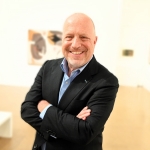
Mr. Ryan A. Nicotra
10 Steps to Build a Localized Movement for the Arts
Posted by Mar 22, 2017

Mr. Ryan A. Nicotra
Allow me to set the scene: while attending the 2016 Americans for the Arts Annual Convention in Boston, I received a text from a friend in my hometown stating that in a late-night meeting the day prior, the local Board of Education unexpectedly introduced and approved an unreasonably high new fee for all students wishing to participate in extracurricular drama programs. Today, after eight months of coordinating an aggressive advocacy campaign that succeeded in eliminating that same fee with the near-unanimous support of the same board members who introduced it, I aim to identify and share the 10 crucial steps and considerations that made this victory for the arts in Harford County, Maryland possible.
Read More







